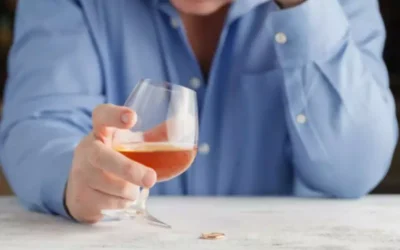When You Don’t Drink But Your Friends Do
Content
I’ve gone from being one of the drunkest people at the party to being (frequently) the only sober person. I made the best decision being sober around drinkers for my life—and that was hard AF. I don’t need people to understand or accept me, because I understand and accept me.

Most trends turn over quickly, but drinking – from mimosas at brunch to post-work beers – has always been portrayed as the ultimate way to have a good time . Most people suffering from Alcohol Use Disorder (AUD) are likely to have been a high-functioning alcoholic at one point. "High-functioning" meaning no discernible or public consequences have occurred (yet). This means they're able to hold a job, maintain relationships, and continue their drinking patterns. You can either let them get the best of you, which leads down a very dark road filled with even more issues, or you talk yourself down. This will be difficult at first but over time, practicing these methods of de-escalation will not only strengthen your mental fortitude but it will make being around casual drinkers easier.
Know that time will build confidence
I haven’t had a drink or cigarette in 23 years, and I’ve only really missed drinking three or four times—mostly when I need a way to medicate overwhelming anxiety. As much as I try to work a “live and let live” vibe, I’ve watched “civilized drinking” ravage the lives of so many families and friends that I’ve developed no interest in it at all. Naltrexone keeps you from feeling high from alcohol. "If you have a slip, it makes a full relapse less likely," Willenbring says. "It's much easier not to take drinks two, three, four, or five because that initial rush is blunted; it doesn't do anything for you." "They order a club soda with lime, and it doesn't bother them."
Surrounding yourself with a supportive community can provide encouragement, inspiration, and a sense of belonging. Choose to spend time with friends and acquaintances who support your decision to socialize without alcohol. Seek out individuals who appreciate and respect your choices. Being in a positive and nonjudgmental environment can make the experience more enjoyable and fulfilling.
How to Help Someone with a Drinking Problem
Join a sober group on Reddit or Facebook, if that’s your jam. This may take some careful vetting to find one that works best for you. Look for jazz cafés, open mic nights, or community bands playing. Many cities and towns will have live music in public spaces, especially during the warmer months.
Or craft an elaborate snacking spread full of your favorite fruits and cheeses (if that’s your thing) and watch a game at home with your friends. It’s a stimulating, challenging, and competitive way to spend a weekend night. You can even join a league for a social outlet. Go to the library and browse for something new.
Be Prepared for People’s Reactions
We feel as though we had been placed in a position of neutrality—safe and protected. That is how we react so long as we keep in fit spiritual condition. Over the past two decades, food and work have emerged as my real drugs of choice. Like most addiction, they’re fueled by shame and the “not enough” gremlins. They’re also tricky addictions because I’m good at abstaining but not so good at moderation.
- Outside of therapy, don’t forget to take care of yourself and your needs.
- As humans, we tend to surround ourselves with people who share common interests, ideas, and hobbies.
- This can mean beefing up the non-alcoholic drink selection and offering more food options or other treats.
- This is especially important if you’re going somewhere where you used to always drink before.
You might find that you get to know each other much better when you’re creating new memories—rather than standing around in the same old bars. They might have fun exploring new places and trying new things with you. Whenever I’m feeling like, “Oh shit, I’m sober and no one else is,” I think back to why I got sober in the first place.
People with blood-alcohol measurements of zero were not included in the analysis. It is important to identify triggers and develop coping mechanisms to prevent future relapses. Video chat with someone in a different time zone than you. Stay up late or plan to wake up super early to chat with them and catch up.


